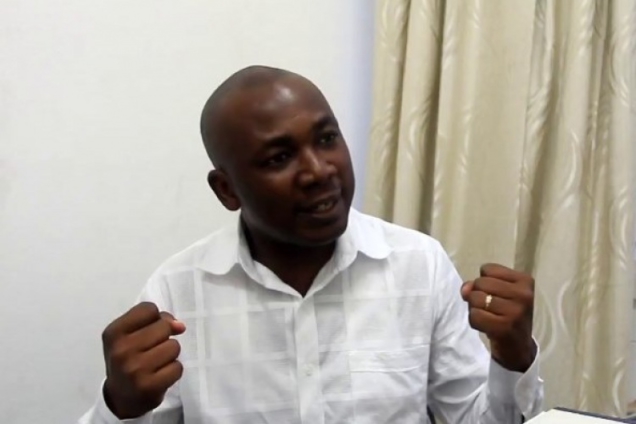Associate Professor of Finance at the University of Ghana Business School, Professor Godfred Bokpin says Government has been insensitive to Ghanaians in efforts to revive the economy.
The Economist said the Akufo-Addo-led administration, despite its advocacy for burden-sharing has not done much in that regard.
He explained that the only reason there are resentments and disapproval of the debt exchange programme is due to government’s failure to demonstrate equity, fairness and burden-sharing.
Prof. Bokpin noted that in the current difficult times, the government’s call for burden-sharing should be exhibited through cutting down expenditure and the size of government.
“This is a government that has preached burden-sharing more in words and practiced less in reality and that is what makes it painful. I believe that the reactions we are getting from organised labour and different occupational groups and a lot of stakeholders that will be affected by the debt exchange, are actually a resentment for the government’s insensitivity.
“Government has done very minimum in burden-sharing. In times like this the low-hanging fruits essentially are cutting down the size of government, merging some of the ministries because money is not flowing,” he said on Top Story, Monday.
Government has announced a ten-day deadline for Domestic bondholders to exchange their investment instruments to the new modalities set by government under the Domestic Debt Exchange programme.
Reacting to this, Prof. Bokpin said government’s decision is a harsh one. He argued that the deadline given to the bondholders will not provide enough time for the financial institutions to be engaged in internal processes before subscribing.
“The approach I see the government is using is more or less through regulatory cohesion to bring participating financial institutions into compliance. Even if you look at the timelines that government has given, it does not even allow for internal processes and governance processes within the respective participating financial institutions to be respected.
“This is a significant event and some may even require shareholder and board approval and all of that and so how do you just put pressure on heads of institutions to commit their institutions to something like this,” he queried.
A number of key interest groups have opposed the debt exchange programme with concerns that it will affect their investments.
The Chamber of Corporate Trustees of Ghana, the Trades Union Congress, the Ghana Medical Association, the Ghana National Association of Teachers and other groups have all rejected the programme.
Latest Stories
-
Rwanda emulates Ghana as it launches digital national ID card
19 minutes -
Omane Boamah could have ended Galamsey menace – Ablakwa
40 minutes -
Afriyie Ankrah warns defiant prophets of public backlash over prophecy directive
41 minutes -
Omane Boamah crafted major health policies in NDC manifesto – Ablakwa
42 minutes -
Pensions Regulatory Authority urges churches to own tier three pensions, register members
43 minutes -
Speaker urges nation to heed spiritual prophecies after deadly helicopter crash
45 minutes -
Honour helicopter crash victims by combating illegal mining – Nii Moi Thompson to gov’t
52 minutes -
Ablakwa mourns victims of helicopter crash, calls it a ‘tragedy of monumental proportions’
56 minutes -
Make our Hansard easily accessible online – Parliamentary leadership
57 minutes -
Helicopter crash: São Tomé and Príncipe President commiserate with Ghana
1 hour -
Tema Traditional Council to ban expensive funerals
1 hour -
Michael Jackson’s ‘dirty’ sock sells for more than $8,000 at French auction
1 hour -
Election Watch Ghana urges postponement of Akwatia by-election
1 hour -
Helicopter crash: Col. Festus Aboagye narrates steps that stalled search team’s ‘late’ arrival
1 hour -
Bright Simons questions military’s readiness for forest rescue operations after deadly crash
1 hour

